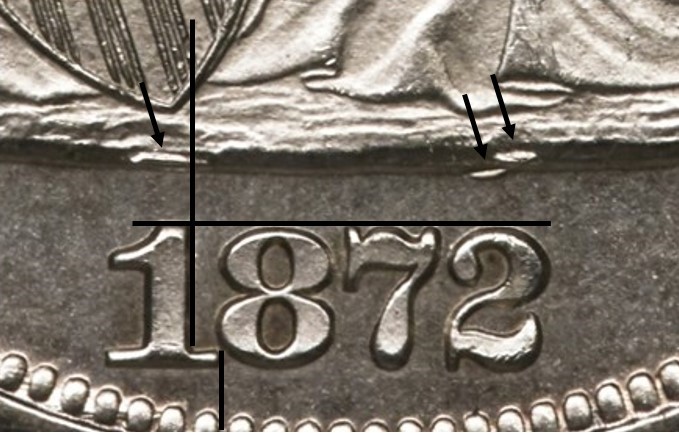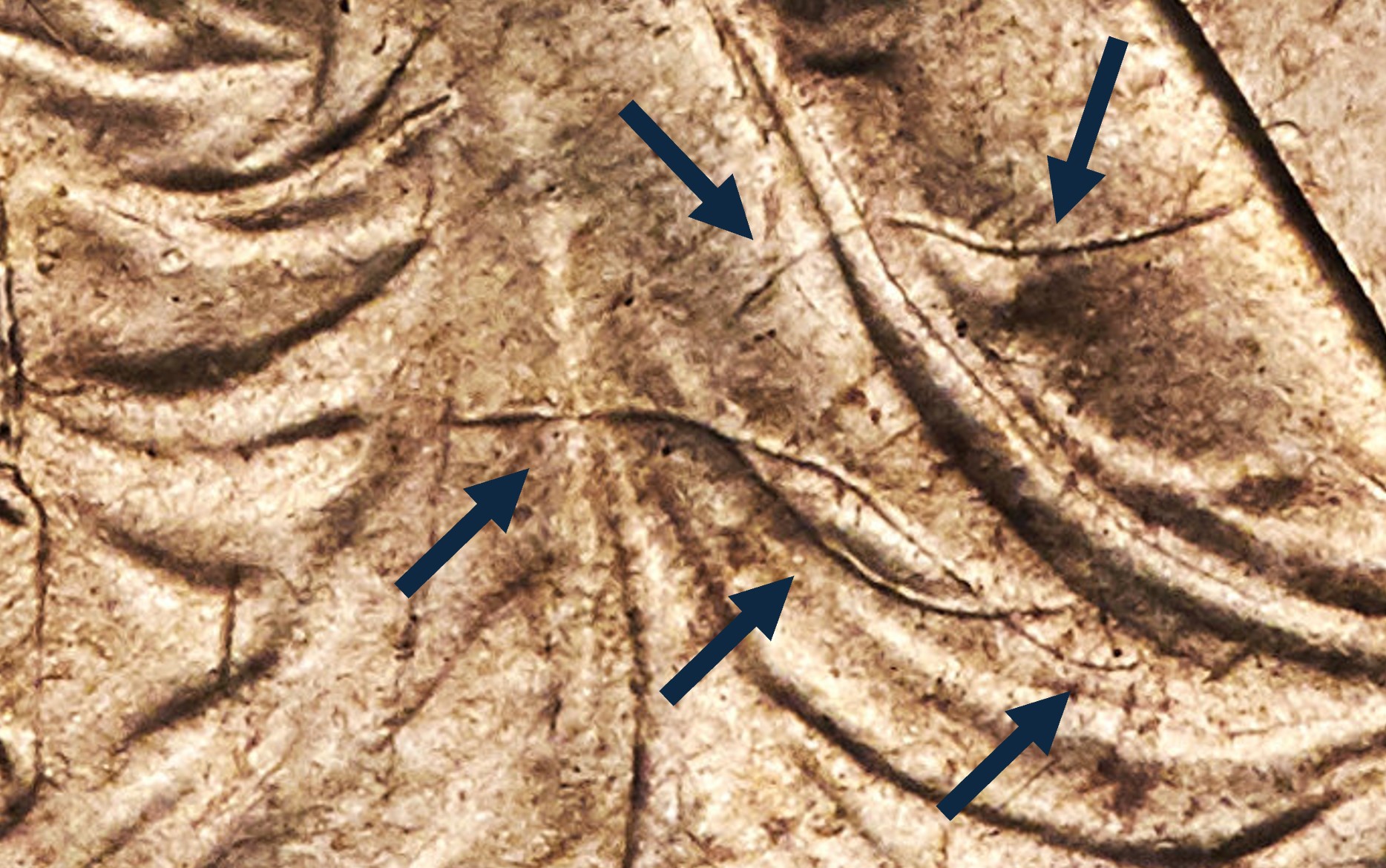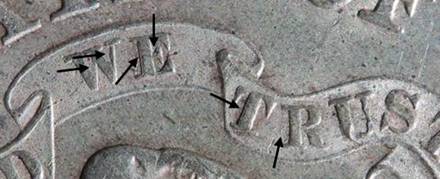|
|
Comments: This is the first of two uses of Obverse 2 and the second and final use of Reverse A. |
Obverse 2 The photo below shows the Obverse 2 attribution grid.  1872 Obverse 2 attribution grid and misplaced digits Obverse 2 also exhibits the remnants of several misplaced digits Ė a 1 and two 2ís. These are indicated by the arrows in the photo. The 2ís are easy to see, with the bases of two different digits visible at the rock base above the 2 in the date. One extends into the field, the other is completely within the rock base. The 1 is a little tougher to see, but youíll easily find it on high-grade coins. The full base of the misplaced digit is seen in the rock base directly above the 1 in the date. We've made this variety one of our Top-30. Other very notable markers for Obverse 2 are sinuous die lines on Miss Libertyís figure, probably created by pieces of lint. These are noted on the following photo.  1872 Obverse 2 sinuous die lines
|
The Reverse A die is strongly doubled. The doubling is most visible on the motto, shown in the following photo. It also displays two shallow lumps just left of the lower part of the R in TRUST, also indicated by an arrow in the photo.  Reverse A die doubling and die lumps
|
| Photo credits:
Obverse 2: 1872 PCGS MS64+ CAC, from the Heritage archives. Obverse 2 die lines: 1872 PCGS MS64+, from the Heritage archives. Reverse A: 1872 PCGS MS62, from the Osburn-Cushing reference collection. |
